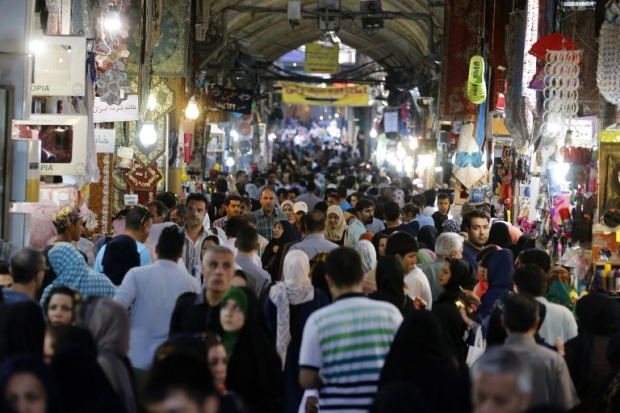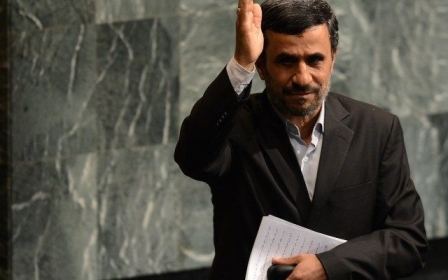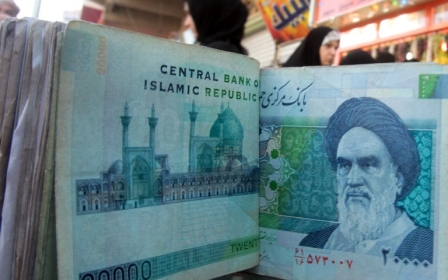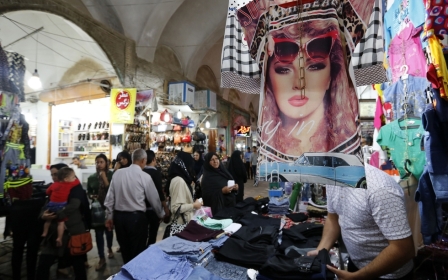Will Iran have its first conservative president since 1989?
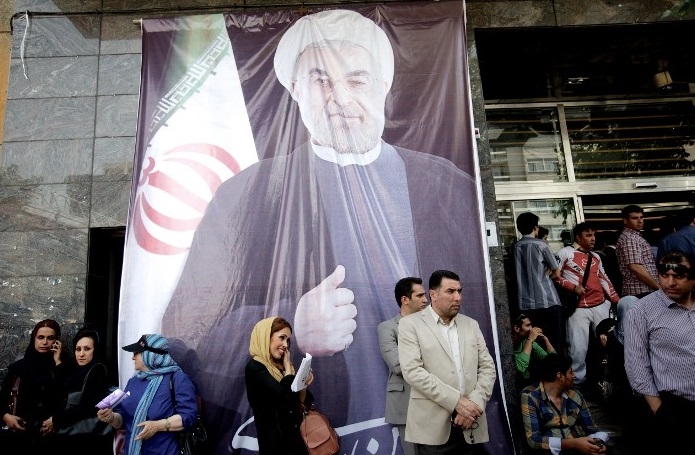
Hassan Rouhani, the current Iranian president, won the 2013 presidential election with 51 percent of the vote, while the four conservative candidates, who refer to themselves as Principlists, collectively received about 40 percent.
Since 1989 – the year that Ayatollah Ali Khamenei assumed leadership in Iran - no conservative president has been in office
The election’s outcome led the Principlists’ radical faction to conclude that if all of their factions united behind a single candidate, they would have a chance to win presidential elections against Rouhani – who represents the moderates and the reformists - this May.
And in December, with a palpable sense of urgency, they formed the Popular Front of Islamic Revolutionary Forces (PFIRF).
At PFIRF’s first convention late last month, 3,000 individuals representing 25 parties attended. They elected 30 members of the organisation’s central committee, all radical conservatives with extreme, anti-American views.
The perfect Machiavellian
Interestingly, since 1989 – the year that Ayatollah Ali Khamenei assumed leadership in Iran - no conservative president has been in office.
Even Mahmoud Ahmadinejad doesn’t identify himself as a Principlist or revolutionary.
“We say this loud and clear: We are not affiliated with any of the two political currents of the country,” he said in a speech earlier this month, referring to the Principlists and the reformists.
READ: Ahmadinejad banned Twitter in Iran. Now he's tweeting his comeback.
Ahmadinejad was a demagogue and a perfect Machiavellian. To attract the widespread support of conservatives, he mocked the US as a paper tiger. But covertly, he made numerous approaches to forge a relationship with Washington.
Meanwhile, he attacked the reformists and what he called their submissive policies (va dadegi in Farsi) in their dealings with the West.
However, as narcissistic as he was, Ahmadinejad was not prepared to share power with anyone or any group, including the Principlists.
Consequently, he became involved in a quarrel with the hardliners and eventually with Ayatollah Ali Khamenei himself over the dismissal of his minister of intelligence. He has been living in political isolation since he left office.
Simply put, all presidents under the leadership of Khamenei – Akbar Hashemi Rafsanjani, Mohammad Khatami, Ahmadinejad and Rouhani – have conflicted with Iran’s leader and today’s Principlist current.
Economic insecurity
But the Principlists, especially their radical faction, see an opportunity in the upcoming elections because Iran’s economy is in a shambles and there is vast dissatisfaction with Rouhani’s economic performance.
'Six in ten say the economy is bad and, for the first time since Rouhani took office, a majority says it is getting worse'
- University of Maryland poll
A January poll published by the University of Maryland found that, “while Rouhani is still favoured in the 2017 presidential elections, his support has dropped below half”.
The poll also maintains that “perceptions about the economy are harming Rouhani’s popularity. Six in ten say the economy is bad and, for the first time since Rouhani took office, a majority says it is getting worse. An overwhelming majority want Iran’s next president to focus on reducing unemployment and fixing Iran’s economy.”
Rouhani and his team hoped that with the conclusion of the nuclear deal, foreign investments would flood into the country. But reality poured cold water on their expectations, as Iran’s economy remains in a state of stagnation for several reasons.
First, European banks are afraid to engage in business deals with Iran for fear of suddenly being caught in an American legal web created by the country’s complex non-nuclear-related sanctions.
Rouhani and his administration are staunch proponents of a neoliberal economy and are almost completely indifferent to the massive and ever-growing inequality and unjust distribution of wealth in Iran.
To challenge Rouhani, the newly emerged conservative front PFIRF has announced that economic justice and people’s livelihoods (vaziyate ma’iishati) will be at the core of their candidate’s platform. The group, however, have not announced their final candidate.
In an unprecedented move, the group has decided not only to introduce its candidate, but also his team (women cannot run for presidency in Iran). They aim to introduce several relatively well-known left-leaning economists, such as Elias Naderan and Mohammad Khosh’chehreh.
At one point, some speculated that Naderan was the conservatives’ candidate, but sources say that as a result of his physical disability (he lost one hand in 1978 during the revolution), a consensus was not reached over his candidacy.
Uniting forces
The reality is that, aside from rhetorical stances adopted from time to time, the conservatives – like their rivals, the moderates and the reformists – have never genuinely stood for economic justice.
Conservatives have controlled parliament during the majority of the Islamic Republic’s existence, but have hardly, if ever, ratified a bill or even suggested one to combat inequality or to improve people’s livelihood.
Aside from rhetorical stances adopted from time to time, the conservatives – like their rivals, the moderates and the reformists – have never genuinely stood for economic justice
The Front faces a serious problem in uniting behind a single candidate. Sources say that some ultra-radicals, namely Iran’s former nuclear negotiator Saeed Jalili, are not prepared to withdraw in favour of the group’s final candidate.
Ayatollah Khamenei has joined the conservatives in publicly criticising Rouhani’s economic performance and his administration ahead of the elections. “We receive complaints from people... People should feel improvements regarding creation of jobs and manufacturing. It is not the case now,” he remarked in a speech on 9 March.
On numerous occasions, Rouhani has defended his administration’s record in a clear clash with the hardliners, who accuse him and his team of incompetence in tackling economic problems.
READ: Iran's abysmal economy: Will voters show Rouhani the door?
As part of his defence, Rouhani has presented statistics regarding inflation reduction and increased economic growth. However, in his speech earlier this month, Khamenei downplayed the significance of the data. “Presenting reports and figures is good,” he said, “but will not impact people’s lives over the mid- and long-term.”
He indirectly alluded to Rouhani’s misjudgement that a nuclear agreement and lifting of the sanctions would result in the attraction of billions of dollars in foreign investments by adding: “attracting foreign investment is a positive measure but thus far a very limited [number] of foreign contracts have materialised [since the sanctions were lifted in early 2016].”
With the Ayatollah’s support of the conservatives, he has already demonstrated that he believes Rouhani is incapable of saving the country’s stagnant economy.
Rouhani’s hurdles
With all that said, Rouhani stands a better chance of winning the elections simply because his opponents face a popularity problem.
The biggest threat to his victory, in the absence of illegal interference in the election process, is that a conservative could score the first win in 28 years if disappointed voters who voted for Rouhani in 2013 stay home.
Meanwhile, Rouhani is clearly nervous about potential interference. In a clear reference to the military apparatus in a speech to election officials on 25 February, he said: “If someone violates [election laws] and is using public funds [in support of a candidate], [be it] a military force, a security force, or an armed force, we have to shout out and stand up.”
- Shahir Shahidsaless is an Iranian-Canadian political analyst and freelance journalist writing about Iranian domestic and foreign affairs, the Middle East and US foreign policy in the region. He is the co-author of Iran and the United States: An Insider’s View on the Failed Past and the Road to Peace. He is a contributor to several websites with focus on the Middle East as well as the Huffington Post. He also regularly writes for BBC Persian. You can reach him at [email protected] or follow him on Twitter @SShahisaless.
The views expressed in this article belong to the author and do not necessarily reflect the editorial policy of Middle East Eye.
Photo: A day after Hassan Rouhani's win in the 2013 presidential elections, Iranians gather outside his campaign headquarters in downtown Tehran (AFP)
New MEE newsletter: Jerusalem Dispatch
Sign up to get the latest insights and analysis on Israel-Palestine, alongside Turkey Unpacked and other MEE newsletters
Middle East Eye delivers independent and unrivalled coverage and analysis of the Middle East, North Africa and beyond. To learn more about republishing this content and the associated fees, please fill out this form. More about MEE can be found here.



